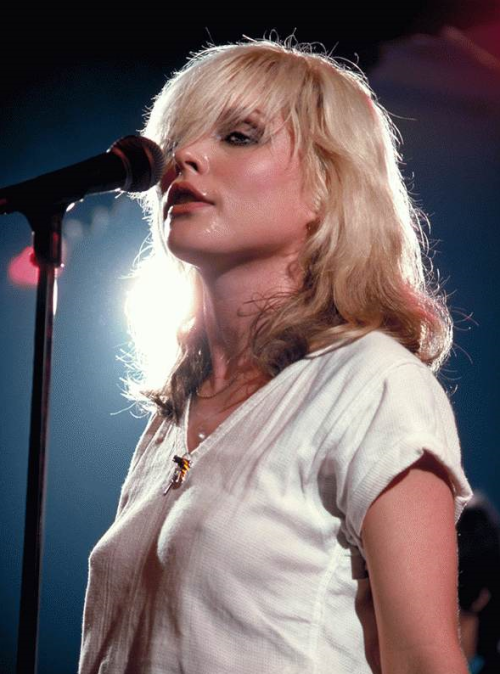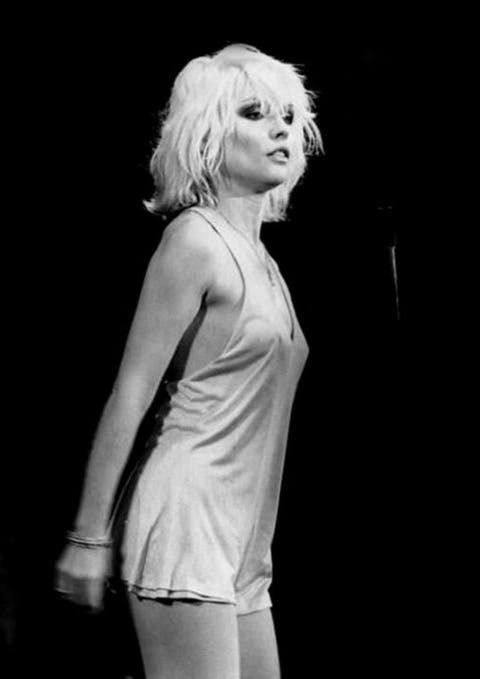Debbie Harry, the lead vocalist of the legendary band Blondie, is a name that resonates across decades, cultures, and industries. From her punk beginnings in the gritty streets of New York City to becoming an enduring icon of music, fashion, and rebellion, Harry’s journey is as bold as her platinum locks. Her story is one of resilience, reinvention, and unapologetic individuality. Let’s dive into the life and legacy of this extraordinary artist.
From Miami to New York: The Early Life of Debbie Harry

Born Angela Trimble on July 1, 1945, in Miami, Florida, Debbie Harry’s life began with a twist—she was adopted at three months old by Catherine and Richard Harry, a couple who ran a gift shop in New Jersey. Renamed Deborah Ann Harry, she grew up in suburban Hawthorne, showing early signs of creative curiosity.
After graduating college, Harry explored a range of jobs, from working as a secretary at the BBC in New York to donning bunny ears as a Playboy Bunny. But her real passion lay in the burgeoning music scene of downtown New York City. Immersing herself in the artistic chaos of the 1970s, she connected with figures like Andy Warhol and The Velvet Underground, experiences that would later shape her career.
The Formation of Blondie: A Punk Revolution
In 1974, Harry co-founded Blondie with her then-boyfriend and guitarist, Chris Stein. The band’s fusion of punk, rock, and new wave quickly set them apart. Their self-titled debut album in 1976 introduced the world to their eclectic sound, but it was their third album, Parallel Lines (1978), that skyrocketed them to fame.
Featuring hits like “Heart of Glass,” “One Way or Another,” and “Hanging on the Telephone,” Parallel Lines became a cultural phenomenon. “Heart of Glass,” with its disco-infused beats, shocked punk purists but showcased Harry’s knack for breaking boundaries. The song’s success marked Blondie as more than a punk band—they were innovators.
“Sweet Dreams Are Made of Style”: Debbie Harry as a Fashion Icon
Harry’s influence extends far beyond music. Her style—a mix of thrift store finds, punk DIY aesthetics, and old Hollywood glamour—defined an era. Inspired by Marilyn Monroe, Harry’s platinum hair and striking features became her signature look. Whether donning thrifted T-shirts-turned-dresses or the iconic white dress from the Parallel Lines album cover, she embodied rebellious sophistication.
Her connection to the fashion world was cemented through collaborations with designers like Stephen Sprouse and later campaigns with major brands like Gucci. In 2024, at 79, Harry became a face for Gucci, proving that age is irrelevant when it comes to timeless style. Her knack for blending punk grit with high fashion continues to inspire generations of artists and designers.

A Groundbreaking Career: From “Rapture” to Reinvention
Blondie’s success in the late 1970s and early 1980s was meteoric. Their 1980 album Autoamerican delivered groundbreaking hits like “The Tide Is High” and “Rapture.” The latter made history as the first rap song to top the U.S. charts, showcasing Harry’s ability to adapt to and embrace emerging trends.
When Blondie disbanded in 1982, Harry launched a solo career with albums like KooKoo (1981) and Rockbird (1986). Her acting career also flourished, with roles in cult classics such as Videodrome (1983) and Hairspray (1988). Despite facing personal and financial struggles—including being cheated out of millions by unscrupulous management—Harry persevered.
Blondie reunited in the late 1990s, reigniting their magic with albums like No Exit (1999) and hits like “Maria.” Their 2017 album Pollinator proved the band’s relevance, with chart-topping success in the UK.
Unapologetically Debbie: Aging Gracefully and Living Boldly
As Harry approaches her 80th birthday, her attitude toward aging is as refreshing as her music. “How did I get so old? I guess I’ve been lucky,” she quipped in a recent interview. For Harry, aging is less about slowing down and more about embracing the moment. Her days are filled with creative pursuits, whether touring with Blondie, working on new music, or collaborating with fashion houses.

Unlike many celebrities, Harry has never shied away from sharing her struggles. Her 2019 memoir Face It is a candid account of her life, covering everything from her adoption to navigating fame and recounting near-miss tragedies, including a chilling mugging incident where her handbag straps saved her.
Debbie Harry’s Legacy: A Voice for Counterculture
Harry’s career has always been about more than music. She is a champion of counterculture, using her platform to challenge norms and celebrate individuality. Her work with Blondie wasn’t just about creating chart-topping hits; it was about pushing boundaries, whether blending genres or addressing social issues.
Her influence is evident in today’s music industry. Artists like Miley Cyrus and Lady Gaga have openly cited Harry as a trailblazer who paved the way for women to express themselves freely. Harry’s refusal to conform to industry expectations—whether in music, fashion, or her personal life—remains a beacon of inspiration.
Unwavering Resilience: Triumphing Over Challenges
Harry’s life hasn’t been without its challenges. In the 1980s, she nursed Chris Stein through a debilitating autoimmune disease, a period that tested both their personal and professional relationship. Financial setbacks, including losing possessions to the IRS, could have derailed her career, but Harry’s resilience kept her moving forward.
Her enduring friendship and collaboration with Stein remain a cornerstone of her career. Despite their romantic split, their creative partnership has stood the test of time, producing music that continues to captivate fans worldwide.

The Timeless Allure of Debbie Harry
Debbie Harry’s journey is a testament to the power of reinvention and authenticity. From the punk rock stages of New York to global arenas, she has never compromised her artistic vision. Her ability to navigate the ever-changing cultural landscape while staying true to herself is what sets her apart.
Whether belting out classics like “Call Me” or gracing the cover of a Gucci campaign, Harry embodies the spirit of rebellion and resilience. She is proof that age is no barrier to creativity and that true icons transcend time.
Conclusion: A Legacy Built on Strength and Style
Debbie Harry’s life is a masterclass in resilience, creativity, and breaking barriers. Her impact on music, fashion, and feminism is immeasurable, and her story continues to inspire. As she approaches her ninth decade, Harry remains as vital and relevant as ever, reminding us all to embrace life’s adventures with courage and a touch of glamor.
Debbie Harry isn’t just a rock star—she’s a force of nature.


